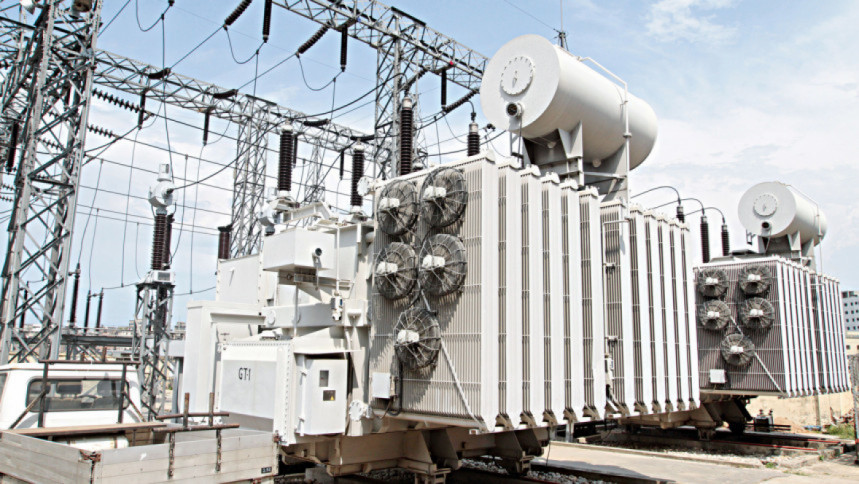Power tariff may rise by 15pc

"If they [the PDB] do not want to increase sufferings, they should rather reduce prices by increasing their efficiency. Profit does not come by hiking prices, rather by improving efficiency. We have reasonable doubt about their competitiveness."
Less than a month after the government said that it was withdrawing energy subsidies, an electricity tariff hike of over 15 percent was placed on the table yesterday.
The technical evaluation committee of the Bangladesh Energy Regulatory Commission (BERC) recommended raising consumer-level power prices by 15.43 percent.
It presented the proposal to the members of the commission during a public hearing at the Biam Auditorium in the capital.
The weighted average tariff charged per kilowatt hour by different power distribution companies is Tk 7.13. It is being proposed that this should rise to Tk 8.23.
Over the last 15 years, power prices for consumers more than doubled and business association leaders and a consumer rights group said further rise in power tariff would put people and industries in more trouble than they are already in due to inflation, and global economic downturn.
On December 18 last year, Prime Minister Sheikh Hasina announced that consumers must be prepared to pay the real cost of electricity.
The subsidies are reflected in the bulk power price level, at which electricity distribution companies buy energy from generators, as opposed to the consumer level.
On November 21, the bulk power tariff was hiked by 20 percent to Tk 6.20 per kilowatt hour. The new bulk price was decided after adjusting for the withdrawal of subsidies.
Bangladesh Power Development Board (PDB) said it would have a shortfall of over Tk 2,000 crore, which can only be covered by hiking consumer-level tariff by 27 percent to Tk 9.03 per kilowatt hour.
Yesterday, the power distribution companies cited the hike in bulk power tariff as the reason for which the price at the consumer level must be increased. They said over the last 15 years, the bulk electricity tariff increased by three and a half times while the price for consumers only doubled.
Almost all power distribution companies proposed tariff hikes of over 20 percent to the BERC. The companies include PDB, Bangladesh Rural Electrification Board (BREB), Dhaka Power Distribution Company Ltd (DPDC), Dhaka Electric Supply Company Ltd (Desco), Northern Electricity Supply Company PLS (NESCO), and West Zone Power Distribution Company Ltd (WZPDCL)
Desco said it was costing them Tk 9.76 to deliver every kilowatt hour when the consumers are paying Tk 7.13 per kilowatt hour.
DPDC proposed that private educational institutions and hospitals be charged at commercial rates, instead of being charged the same as public schools and hospitals. It recommended that electric vehicle charging stations be levied inflated rates.
It also proposed that clusters of homes in slums be charged a subsidised flat tariff.
Meanwhile, Power Grid Company of Bangladesh Ltd proposed that the wheeling charge (transmission charge) be hiked by as much as 120 percent with effect from February.
In addition, the metro rail authorities (Dhaka Mass Transit Company Ltd) and the high-tech park authorities asked for a subsidised electricity rate of Tk 5 per kilowatt hour.
The five-member BERC, led by its Chairman Abdul Jalil, would make the decision within the next 60 days.
The Consumer Association of Bangladesh (CAB) opposed the proposed tariff hike and called it unjustified.
CAB Vice-President ASM Shamsul Alam said those who increased the bulk price of electricity took into consideration that power production would be increased by 6 percent. But it is uncertain if the fuel needed for that increased production can be obtained. This would leave the power companies with extra money, he said.
"The government had given a subsidy of Tk 12,700 crore to import LNG and also increased consumer prices by 23 percent to cover the costs. Last year, that much LNG could not be imported. How much did the revenue demand decrease last year as a result?" he questioned.
Anwar-ul Alam Chowdhury, president of Bangladesh Chamber of Industries, said a 15 percent hike in electricity tariff will only exacerbate inflation and increase sufferings of the people of low-income group.
"If they [PDB] do not want to increase sufferings, they should rather reduce prices by increasing their efficiency. Profit does not come by hiking prices, rather by improving efficiency. We have reasonable doubt about their competitiveness," he said.
"It is high time to enhance efficiency," he said, citing global economic slowdown and fears of recession in Europe. When sustaining exports is a challenge, power price hike will increase production cost, he added.
The BCI president demanded reduction of waste and slashing Value Added Tax, and other taxes to keep the tariffs at tolerable level.
Faruque Hassan, president of Bangladesh Garment Manufacturers & Exporters Association (BGMEA), also said production cost would increase amid concerns over a looming global recession.
"Rather than hiking prices, they should the cut system loss," he said, adding, "Still there are a lot of illegal electricity connections. If the government strictly monitors and disconnects illegal connections, the cost that has increased will be covered."
The BGMEA president said instead of increasing power price, the government might consider increasing prices of gas a little and ensure supply of fuel to industries.


 For all latest news, follow The Daily Star's Google News channel.
For all latest news, follow The Daily Star's Google News channel. 



Comments